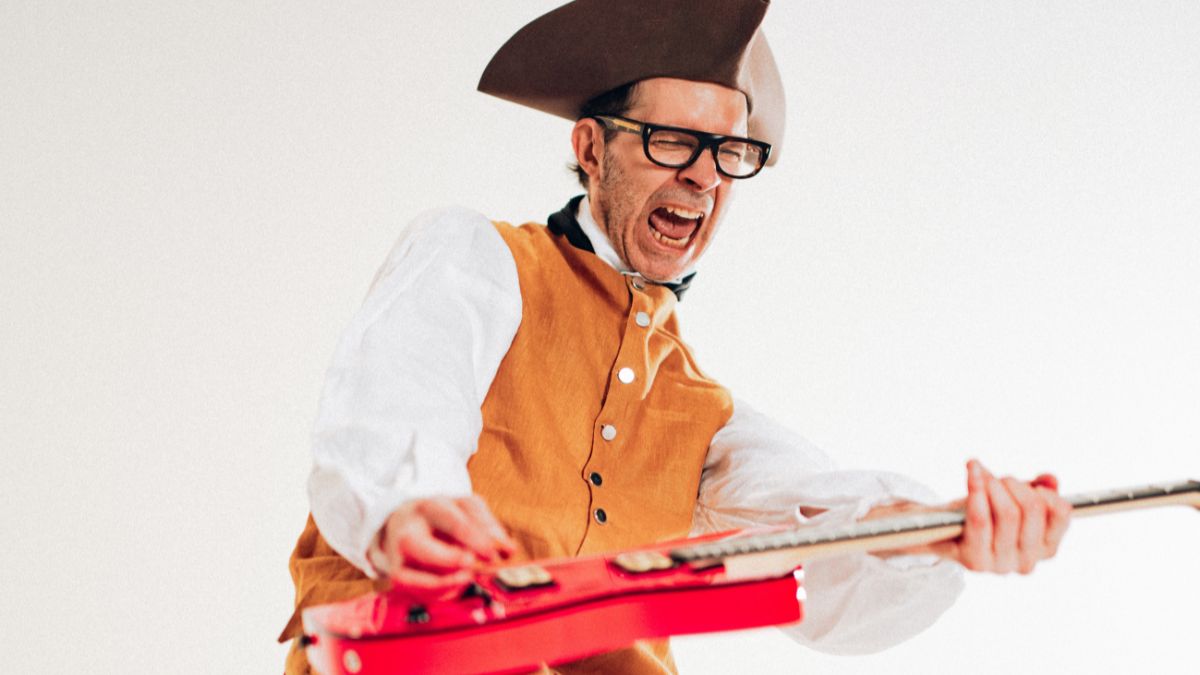Graham Coxon: “A big part of me wishes I had just kept everything simple with Blur and played Gibson Les Pauls for everything”
With his new project The WAEVE's debut album on the way, the British rock hero discusses how he sought to create a new guitar identity, the gear he'll be using for Blur's 2023 reunion shows and the song he's most looking forward to revisiting
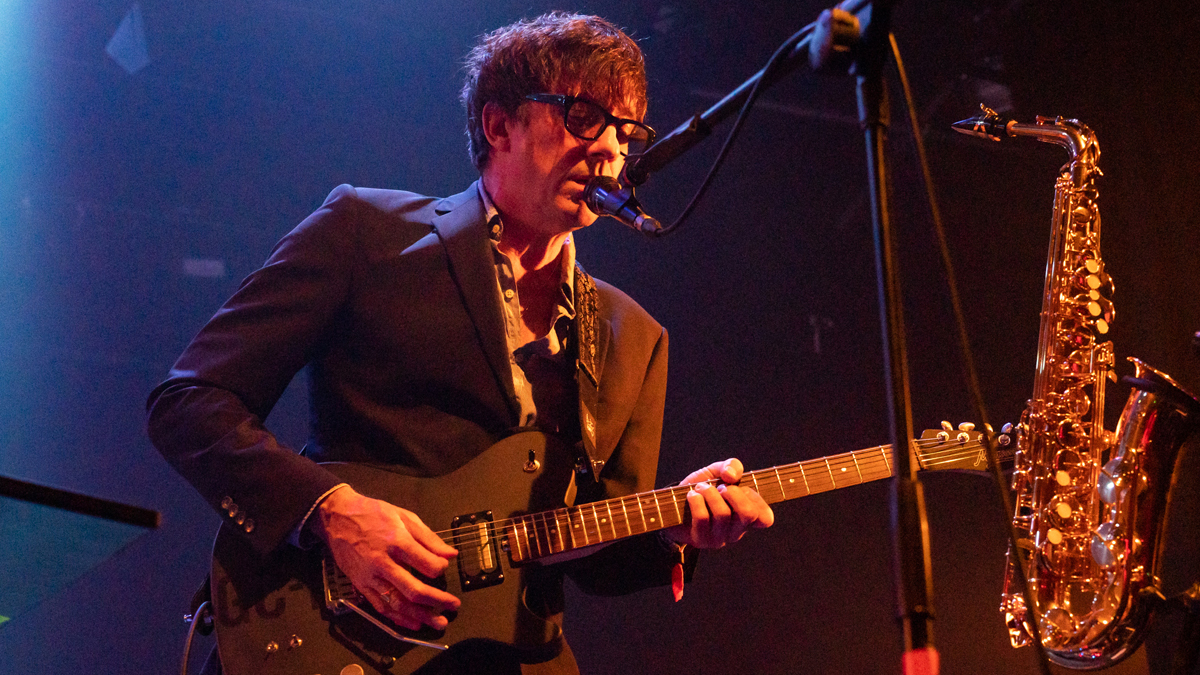
All the latest guitar news, interviews, lessons, reviews, deals and more, direct to your inbox!
You are now subscribed
Your newsletter sign-up was successful
The feedback from Graham Coxon's guitar has been buzzing around the heads of his fans for the better portion of 30 years, and while Coxon's heroics with Blur are well known, the band's propensity for long pauses seems to have found Coxon searching for other creative outlets. As such, with the inspiration flowing, Coxon and his new musical partner Rose Elinor Dougal began to craft the music that would become their debut material as The WAEVE during lockdown.
“We're both fans of folk music, so there's an elemental side to the landscape of this music that reflects that,” recalls Coxon. “There's an energy of Great Britain's countryside buzzing throughout this album and I think it gave this album a lot of its identity.
“Using different instruments we were able to get some of the soil of this land into our music," he adds. "We mixed some folk-horror tradition in, too, through strings and some distorted bass, so there's a bit of that going on for some extra satanic and medieval fun. I'm a bit witchy at times, I suppose [Laughs].”
One might assume recording an album during lockdown would breed something rather depressing, but with The WAEVE, Coxon and Dougal have managed to deliver a musical prescription for what ails us. Indeed, The WAEVE features Coxon's penchant for odd instrumentation and off-kilter compositions, but also offers an underlying message of hope delivered between grand flourishes.
“We didn't know what was going to happen,” Coxon admits. “We were making these songs in isolation and occasionally going outside. When we would, you'd see one or two people who were like beetles scurrying from rock to rock. There was hardly anyone around and with that sort of atmosphere we felt like we didn't have much to lose.
“So, we resolved not to dwell on our pasts or each other's pasts. Of course, we took that with us into the music, but we wanted to look forward to creating something optimistic about the future.”
But no matter how far he strays, for Coxon and the other members of Blur, all roads seem to lead home. Plus, if the latest news regarding Blur's reunion shows at France's Beauregard Festival on July 6, 2023, and London's Wembley Stadium on July 8, 2023 is any indication, the London-formed band's rare blend of musical chaos is set to kick off yet again.
All the latest guitar news, interviews, lessons, reviews, deals and more, direct to your inbox!
“Although we don't talk that much now when we get together, it's still very intuitive,” Coxon quips. “I'm not sure I'll ever be able to put my finger on the dynamic of Blur and I don't know if other sorts of musicians talk that much about what they're bringing into the music, especially if they are intuitive players and not hugely technical musicians.
I don't really know what I'm gonna do from one moment to the next when it comes to Blur; I just let it happen as it will
“But I think we make it up as we go along. It's always been a bit more instinctive because I don't know any scales or anything; it's action painting for me. I don't really know what I'm gonna do from one moment to the next when it comes to Blur; I just let it happen as it will.”
As he prepares to support his latest release with The WAEVE, Graham Coxon dials in with Guitar World to discuss creating music during the lockdowns, experimenting with saxophone in his music and the gear he plans to deploy for Blur's reunion shows.
What are the origins of The WAEVE?
“Rose [Elinor Dougall] and I decided to get together after chatting at a show we were both involved in. That was at a jazz café in London around December 2020 during the lockdowns, and from there we began writing. In early '21, we started to hang out, share songs and find common ground where the music began to expand. It became apparent that we had a lot of common ground musically, and we started coming up with music that excited us quite fast. Within two weeks, I was like, 'Crikey, I'm really liking this stuff,' and we kept going from there.”
This record seems to have some profoundly emotive undertones. What was your shared mindset going in?
“We were both in a bit of a low ebb coming out of 2020. We both had a bit of a crap year – like a lot of people did – and we honestly were both on the edge of packing it all in and calling it a day. I suppose this collaboration got us out of our collective despondency.
“The feelings within this music developed as our work together intensified, but it always felt very safe within the room we were working in, which was quite small [Laughs]. We recorded in this tiny room I'm sitting in now, and it's not a big room, so it was important that we felt safe and could open up to one another even though we didn't know each other very well at first.”
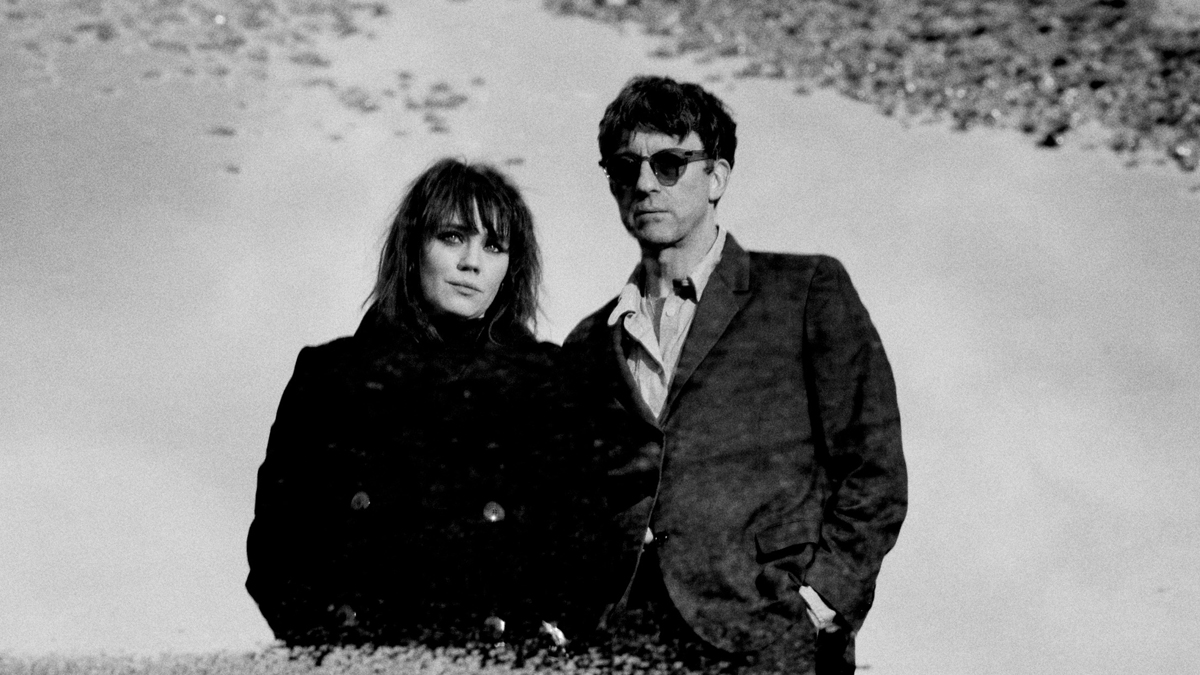
Can you break down the writing process between yourself and Rose?
“Since I'm a guitar player, I'd come up with many chord sequences. But, of course, that has its limitations where my chords are quite simple, so Rose would often take over on piano and make things a lot richer. The combination of what I do and what Rose does creates quite fertile ground for melody, where the lines and lyrics work independently of each other. Then we'd come together and see which one worked best or whether someone had inadvertently written a new section for the song.
“We'd carry on like that, expanding the sonic palette and allowing things to go in other directions. It was quite freeing in many ways, I think. It was almost like the lyrics that Rose wrote, I would respond to, and the lyrics became almost like a dare where it was almost trying to communicate something but nothing too overwhelming. I like that it's vague enough for an audience to get inside and perhaps put their own meaning into it. But I also like that it was honest and came from a place of courage.”
How did you separate the player you are with Blur from the one you are with The WAEVE?
I didn't want to be Graham Coxon from Blur within this music. But there were times when Rose had to say to me, 'For f**k's sake, just do your Graham Coxon thing here on the guitar'
“I didn't want to be Graham Coxon from Blur within this music. I was restraining myself a little bit with the guitar until there were points when I really wanted the guitar to have a real impact. That was where I got the idea of adding saxophones.
“But there were times when Rose had to say to me, 'For fuck's sake, just do your Graham Coxon thing here on the guitar. Please just get the guitar out and have a go at it.' She had to do that, though, because I was a little reticent to make the songs thick with my energy. If you play guitar, then you know the guitar can come with quite a lot of baggage, mainly because I didn't particularly want people listening to this album trying to find Graham from Blur.
“I wanted to occupy other areas of myself with the guitar and other instruments and see how that might push Rose to be more aggressive with her vocals. That was important because when Rose worked with other people, they always pushed her to sing in a certain way, but for The WAEVE, I wanted to hear strength but also vulnerability from Rose. I tried to extract that from my vocals, too. The goal was to try to be unapologetic and show vulnerability, weakness and faults.”
How did adding saxophone into the mix for this record allow you to stretch out creatively?
“It's a different way to approach chords, which is always fun. There's a song called Can I Call You, which breaks down to nothing but saxophone chords at one point, which was very different. I'd never put many saxophones in my pop or rock music before, but I've always enjoyed it through jazz and things like that. It's tricky because you've got to use the saxophone tastefully, but that can be quite difficult. But other people like Bowie and the like have done it, so I thought we could have a go at it.”
How does your compositional process differ when writing for The WAEVE as opposed to Blur?
“Well, this was a direct writing partnership with one other person, and I don't think I've ever done that before. Recently with Duran Duran, we all wrote in a group context, and that's what I've always done with Blur. I've written my own things, but this experience was quite nerve-racking. I guess I didn't want to be too forceful with my own ideas, either.
“Then again, I wouldn't be anyway because I'm not that kind of a person. Neither of us is egocentric, so it was a balanced partnership with Rose. Any idea I had, I trusted her to expand upon it, and I quickly trusted her judgment from a perspective of editing as well.”
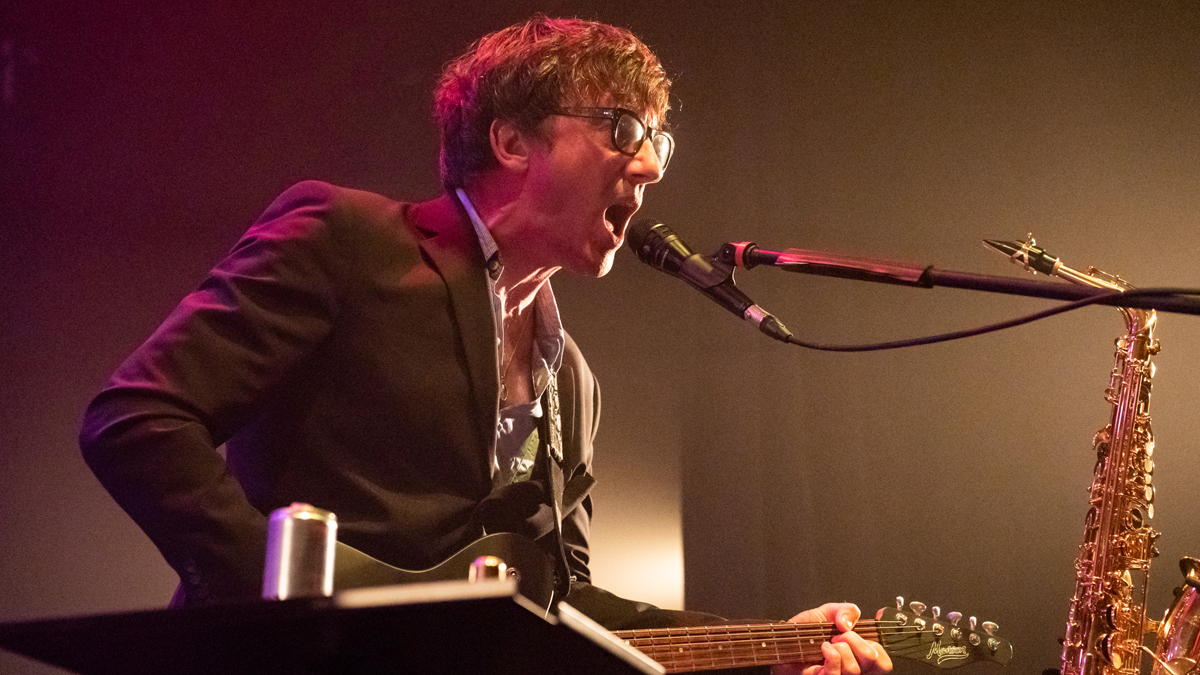
Was working with Rose much different than working with Damon Albarn?
“It was very democratic and easy in some ways, even though making an album is never easy. So, from that, a new identity quickly emerged, and it was good to work with someone like Rose, who can compose on the piano, which I've gotten used to doing with Damon. Piano players come up with different ideas from guitar players, and they can do some other weird sorts of things because their fingers work on the keyboard differently than mine do on a guitar's fretboard.
Guitar playing can be a bit trite with reverb, tremolo and things like that, so we tried to take it to a place that evokes dreamlike imagery
“There are so many unexpected things that come from writing with a pianist that I like a lot. The music becomes deeper, richer and more sophisticated, somehow. I really enjoyed that, and I found myself trying to create new and exciting harmonies, particularly with the saxophone songs. Guitar playing can be a bit trite with reverb, tremolo and things like that, so we tried to take it to a place that evokes dreamlike imagery. We wanted the music to take on a surreal feeling and be able to shape-shift through space.”
I wanted to pivot to the recently announced 2023 reunion shows with Blur. What made now the right time to fire things up again?
“We always seem to drift apart and come back together, don't we? We always tell people, 'Look, man, this is what we do. We told you this was gonna happen back in 1994.' Or maybe we just think that's how people see it; maybe we're deluded. I don't know. There's never any grand plan behind it, really. I guess it just seems like a nice time to have a look at these songs again.
“Maybe we'll find a way to approach them a little differently. I think we just wanted to play some Blur songs again. It's been the longest time since we've done anything, so it was about time we catch up with each other and make sure we're not all super-insane. I suppose we've got to keep an eye on one another and make sure we're all still on the same planet [Laughs]. We have to do that every now and then because we don't see each other often.”
While you don't see each other as much as in the old days, the comradery seems to remain. To what does the chemistry of Blur owe its longevity?
“I think it's learned chemistry. It's almost like when you snap into the role you may have in a band that you've had for a long time, the dynamics just sort of happen. No matter how long we're apart, when we come together as Blur, we always seem to want the same things from each other, which is comforting.
“What I mean is the expectation is always the same because, of course, sometimes we want different things musically. The '90s was a very different time for music, and these days the landscape has shifted dramatically, so it's nice to get together with Blur and see how it might affect the way we want to play the old music in some new ways.”
What sort of gear are you considering using for Blur's summer shows?
“Well, there's the old Marshall Plexi, and I've got some Victory amps I've been using with The WAEVE that I'd like to look at, too. I've got a 100-watt [Boss] Katana that is just so easy to use when I go into acoustic mode. I have a GFS pedal, a couple of expression pedals and the Uni-Vibe for when I need to raise the gain levels a bit. They're all just amazingly handy pieces of kit, and I like to mix them all in.
“I've been looking at the [Line 6] HX Effects stuff as well, but there are a lot of digital effects pedals and some great analog pedals being made nowadays, too. And then people give me stuff, and I always want to use everything that people give me to share my support. But as far as amps go, the old Marshalls seem to go on forever; I've had them for such a long time now. The important thing is to get whatever I'm using flipping loud [Laughs].”
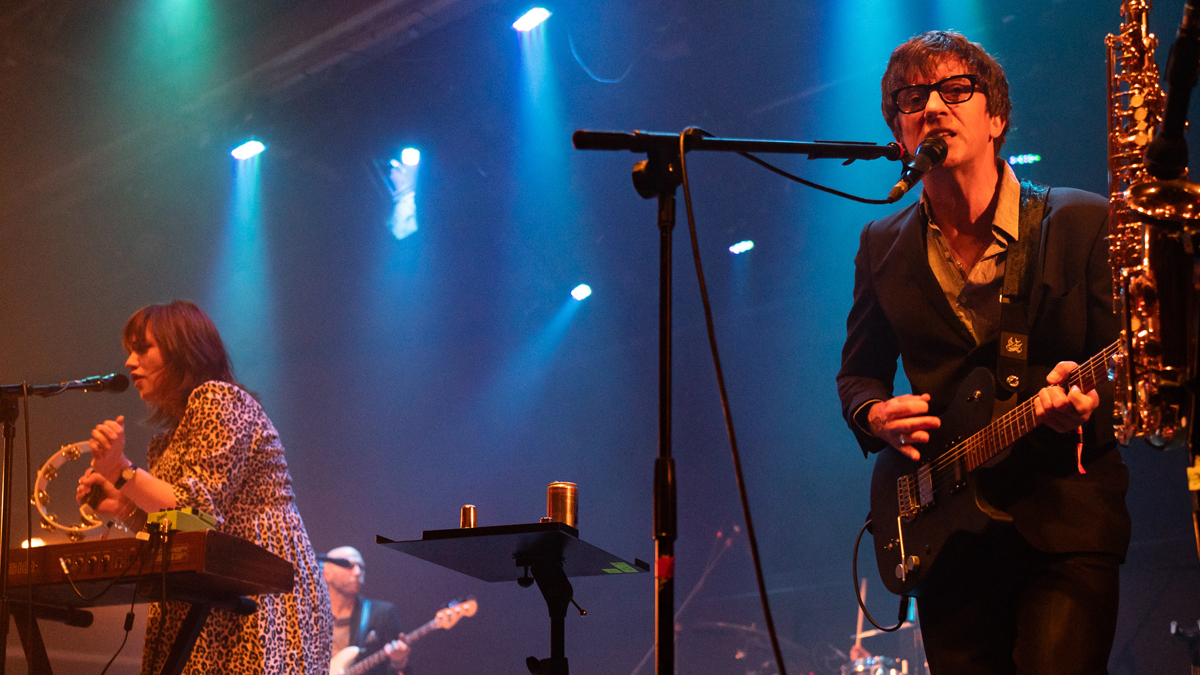
You're well known for using Telecasters. Do you plan to deploy any other guitars as well?
“I love my Tele; it's like a hot rod, isn't it? It's about as stripped-down as you can get, but I love that you can get a good, fast sound out of it. I've used them often with Blur, so I'll use those as they're synonymous with the music. I've got some custom guitars, and I have this one that is a sort of Gibson Les Paul Special-ish looking one, and I think I might use that. I also really love my SG Specials; they're late '60s ones with the P-90 pickups. I really love those guitars.
A big part of me wishes I had just kept everything simple with Blur and played Les Pauls for everything
“A big part of me wishes I had just kept everything simple with Blur and played Les Pauls for everything. I love humbuckers, and I've always loved the scale length of Gibsons. I like them when I'm playing nice, big, fat rhythms with the odd bit of lead.
“I like my old guitars, but I've got some new ones that are like multi-function tools. They're these amazing things that have tremendous sustain and built-in fuzz. I love the chaos they can bring. They're incredible things, especially with sustaining capabilities. I'm really into that.”
Which songs are you most looking forward to playing?
“A lot of them are so contrary and very tricky to where I end up forgetting a lot of what I've done. Having said that, This is a Low is always great to play. It's got a great big solo in the middle, which is always fun for me to play. It's my little reward at the end of a set. I can get quite irritated by what I've played before, but some of them never get old.
“It never really gets old for me, and neither does Jubilee. I like that one because it's got a sort of cheeky, mischievous, punk rock thing happening. But I must say that I'm getting a bit more mellow in my old age to the point where I love the idea of just getting a lovely rhythm guitar sound, standing there, and grooving away with our great rhythm section. That's my dream.”
This begs the question: do Blur plan to release any new music?
“It's just shows for the minute but that could always change. This might be the first time in a very long time that we've decided to do some shows without having some new stuff to play. We've still got a bit of time before we start up, but then again, there's not much time, is there? So, no, there's no new music in the works for the time being. But who knows?”
- The WAEVE's self-titled debut album will arrive February 3 via Transgressive Records, and is available to preorder now. Visit Blur's website for more information about their 2023 reunion shows.
Andrew Daly is an iced-coffee-addicted, oddball Telecaster-playing, alfredo pasta-loving journalist from Long Island, NY, who, in addition to being a contributing writer for Guitar World, scribes for Bass Player, Guitar Player, Guitarist, and MusicRadar. Andrew has interviewed favorites like Ace Frehley, Johnny Marr, Vito Bratta, Bruce Kulick, Joe Perry, Brad Whitford, Tom Morello, Rich Robinson, and Paul Stanley, while his all-time favorite (rhythm player), Keith Richards, continues to elude him.

